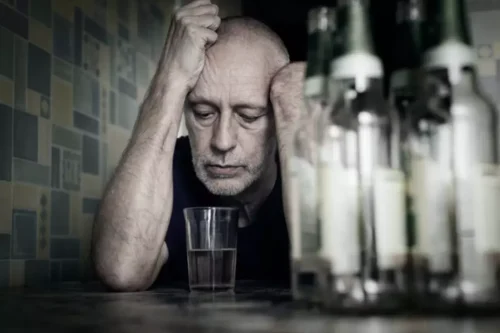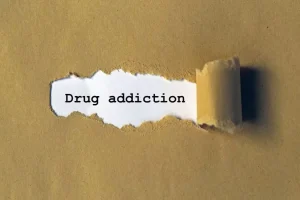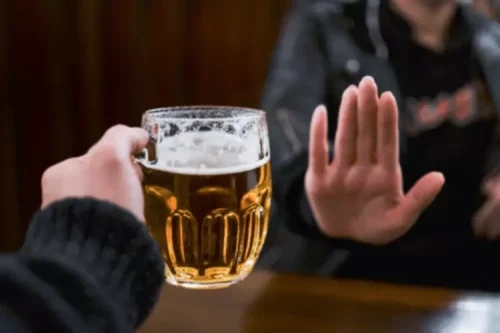Drug addiction substance use disorder Diagnosis and treatment

Relapse rates for drug use are similar to rates for other chronic medical illnesses. If people stop following their medical treatment plan, they are likely to relapse. Relapse is a return to drug- or alcohol-abusing behavior and may be particularly dangerous for the older adult population, as the risk for a fatal overdose may be high during a relapse. When someone abuses drugs or alcohol for a long time, body and brain chemistry adapts to certain levels of the substance, and a tolerance builds up. Detox removes these toxins from the body and helps to reset these chemical changes in the brain and body. When people then return to abusing drugs or alcohol at levels they may have been previously tolerant to, the body is not able to handle these amounts any longer, and overdose may occur.

National Helpline
Dual diagnosis care, medical detox, and behavioral therapy are often provided in long-term rehab programs. One way to find free drug rehab facilities is through the government; the Substance Abuse and Mental Health Services Administration (SAMHSA) provides a search tool that can find nearby treatment centers based on an individual’s address. The search tool allows individuals to filter programs based on their specific requirements and shows the various free inpatient rehab centers and free outpatient rehab centers available to them.

How Do You Identify an Effective Treatment Facility?
- Even after you’ve completed initial treatment, ongoing treatment and support can help prevent a relapse.
- Knowing if rehab can help you is a personal decision that requires an assessment of a variety of different factors.
- “They have to let others care for them, which is hard to do,” says Dr. Hemphill.
- Because these medications can come with their own risks and are required to be administered under the care of a doctor, they are more easily managed in a residential program where medical professionals can oversee their use or discontinuation.
To find another treatment program, browse the top-rated addiction treatment facilities in each state by visiting our homepage, or by viewing the SAMHSA Treatment Services Locator. A long-term drug and alcohol treatment center can help you or your loved one achieve lasting recovery. White Sands is a luxury addiction recovery program in Tampa, FL, that offers a long-term residential program https://ecosoberhouse.com/ for up to 90 days. After completing the recommended treatment plan, it’s important to have a game plan to help maintain a new sober lifestyle. While individuals may return to work, school, and other activities, they need to surround themselves with a support system of family, friends, treatment alumni, and mentors who will encourage and promote healthy lifestyle choices and distractions.
Middletown Medical

Medical detox may use medications to accomplish this process is an inpatient or outpatient setting, depending on individual circumstances. The goal of an intervention is to help someone see the need for, and willingly enter, a treatment program. Motivational counseling and education on substance abuse and addiction may help someone gain the internal motivation to seek treatment and may be as effective for some people as a structured intervention. Recognizing when substance abuse is concerning is often the first step in getting necessary treatment for a drug or alcohol problem. In many cases, the individual may not recognize the need for treatment, and an intervention may be necessary. An intervention is a carefully planned meeting of loved ones and family members affected by a person’s substance abuse.

The Assistant Secretary for Mental Health and Substance Use Dr. Delphin-Rittmon speaks to the millions reclaiming their lives from substance use and mental health conditions. Motivational Interviewing (MI) is another therapy method that helps how long is drug rehab people to recognize that change is necessary while promoting acceptance in a nonthreatening and non-confrontational manner. Stigmas surrounding age and addiction may need to be absolved in order to ensure that treatment needs are fully met.
List Of Long-Term Drug And Alcohol Treatment Programs
Your therapist or licensed counselor can help you locate a self-help support group.

They may then enter formal treatment that includes a structure of groups, therapy, skills training, medication management, and other support. To maintain the strides made during treatment, a period of rehabilitation may be followed by an aftercare program that prepares the patient for sustaining long-term recovery. Whether you enter an inpatient or outpatient program, drug rehab gives you the opportunity to start managing your substance use disorder. Regardless of the program you enter, you should also receive assistance in entering aftercare treatment options that can help you ease into your typical everyday routine. While rehab focuses on helping clients stop using the substance they’ve become dependent on, it also tackles the root causes.
- A good first step toward finding the right treatment may be to reach out to a friend, loved one, or support person, or to speak with a physician about options for care.
- The purpose of inpatient rehab is to take away some or all of the triggers that might have pushed you to take drugs in the first place.
- Finding the right drug and alcohol rehabilitation center is an important part of recovery.
- Once recovery is in progress, it can help to be surrounded by others who understand and who can help the recovering individual through the process, such as by participating in self-help groups and other counseling programs.
- This article will explain what inpatient drug rehab is and how it can help people recover from addiction.
Medications for Substance Use Disorder
Mental health is a key component of addiction treatment because without addressing the root of the problem, as well as addressing any additional mental health issues, it will be very challenging for you to maintain your sobriety. Mental health is important both for treating a substance use disorder as well as addressing any co-occurring disorders, which can be very common for those dealing with addiction. If you are searching for detoxification centers, inpatient treatment, or outpatient treatment, American Addiction Centers (AAC) maintains rehab centers across the United States. During inpatient rehab, receiving treatment for a mental health condition, such as a co-occurring mental health disorder, is possible. The purpose of inpatient rehab is to take away some or all of the triggers that might have pushed you to take drugs in the first place.
Finding an Effective Residential Treatment Program
Barriers to accessing drug treatment may worsen negative health outcomes and further exacerbate health inequalities in the United States. Stigmatization of drug use, the War on Drugs and criminalization, and the social determinants of health should all be considered when discussing access to drug treatment and potential barriers. Individuals coming out of an intense rehab program may consider returning to work part-time and easing into the stress and demands of everyday life, she adds. Like treatment for other chronic diseases such as heart disease or asthma, addiction treatment is not a cure, but a way of managing the condition.


No Comments